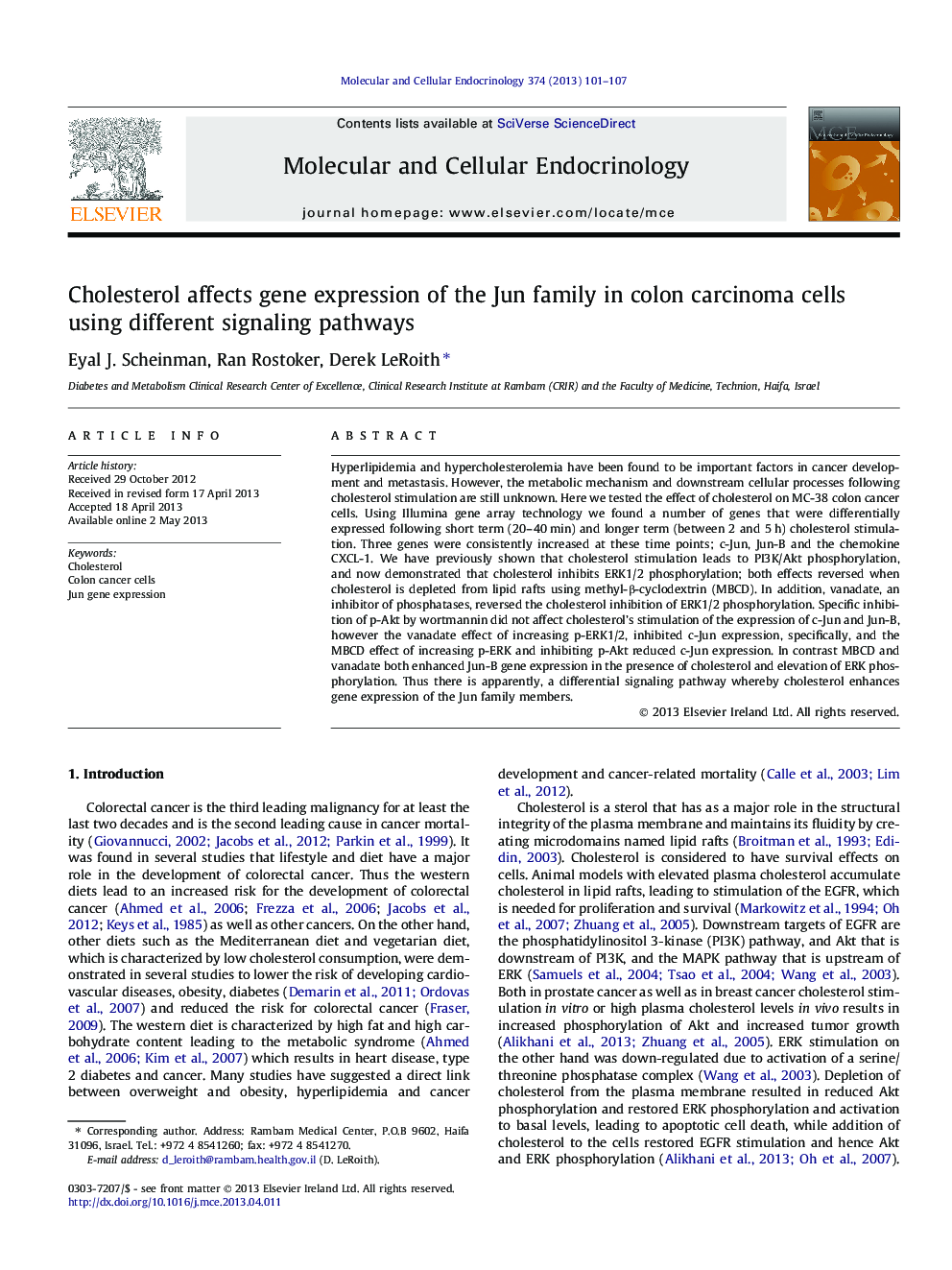| Article ID | Journal | Published Year | Pages | File Type |
|---|---|---|---|---|
| 8477466 | Molecular and Cellular Endocrinology | 2013 | 7 Pages |
Abstract
Hyperlipidemia and hypercholesterolemia have been found to be important factors in cancer development and metastasis. However, the metabolic mechanism and downstream cellular processes following cholesterol stimulation are still unknown. Here we tested the effect of cholesterol on MC-38 colon cancer cells. Using Illumina gene array technology we found a number of genes that were differentially expressed following short term (20-40 min) and longer term (between 2 and 5 h) cholesterol stimulation. Three genes were consistently increased at these time points; c-Jun, Jun-B and the chemokine CXCL-1. We have previously shown that cholesterol stimulation leads to PI3K/Akt phosphorylation, and now demonstrated that cholesterol inhibits ERK1/2 phosphorylation; both effects reversed when cholesterol is depleted from lipid rafts using methyl-β-cyclodextrin (MBCD). In addition, vanadate, an inhibitor of phosphatases, reversed the cholesterol inhibition of ERK1/2 phosphorylation. Specific inhibition of p-Akt by wortmannin did not affect cholesterol's stimulation of the expression of c-Jun and Jun-B, however the vanadate effect of increasing p-ERK1/2, inhibited c-Jun expression, specifically, and the MBCD effect of increasing p-ERK and inhibiting p-Akt reduced c-Jun expression. In contrast MBCD and vanadate both enhanced Jun-B gene expression in the presence of cholesterol and elevation of ERK phosphorylation. Thus there is apparently, a differential signaling pathway whereby cholesterol enhances gene expression of the Jun family members.
Keywords
Related Topics
Life Sciences
Biochemistry, Genetics and Molecular Biology
Cell Biology
Authors
Eyal J. Scheinman, Ran Rostoker, Derek LeRoith,
